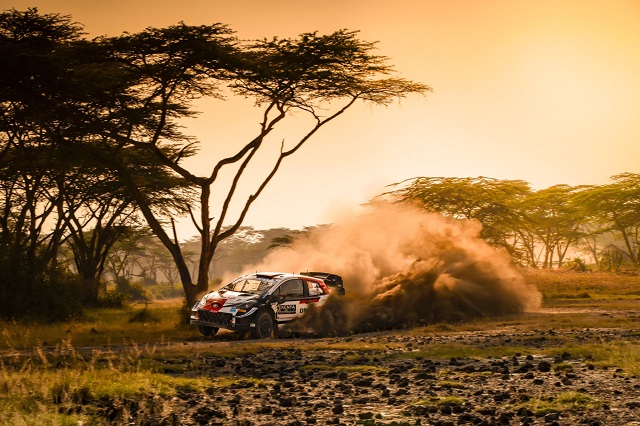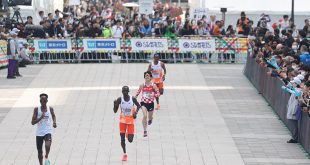
Nairobi, Kenya | Xinhua | The ultimate test between man and machine roared back to life during the past week with the successful hosting of the 2021 Safari Rally in Kenya.
On June 27, Frenchman Sebastien Ogier was crowned the winner of the WRC Safari Rally 2021 for his fourth victory in the main competition this season, but his crowning achievement told only a part of the story.
From the ceremonial start on June 24, through the back-breaking Stage 3 to 7 the following day, to the flash storms that stunned the drivers on June 26 rounded off by the dramatic finish on June 27, the African classic lived up to its storied reputation of the past.
This is notwithstanding the event being shortened to tight sprint stages to suit the modern-day requirements in rallying.
“After our troubles on Friday, we had a really good weekend, really good pace. It’s been an amazing experience to be here. The support we got from the local people was incredible. It might be a bit shorter than the old days, but the challenge is still very tough,” the ecstatic Ogier, who led the 26 survivors out of 58 starters who made it to the finishing ramp on Sunday, remarked following his 3:18.11.3 victory.
The Frenchman and virtually the entire field that started the event had never featured in the Safari Rally as part of the WRC.
Seven-time world champion Ogier, navigated by countryman Julian Ingrassia, topped the time charts on Day 1 ahead of Toyota Yaris WRC teammate Kalle Rovanpera, navigated by Jonne Halttunen by only three-hundredth of a second.
With the cars moving to Naivasha, a town 97km northeast of the capital for the closed stages on June 25, virtually half of the top contenders retired in the brutal morning session.
Two awful crashes in the morning and afternoon sessions captured the back-breaking nature of the event, presumed as “the toughest rally in the world.”
Kenya’s Tejveer Rai who rolled four times in his VW Polo Gti was airlifted to Germany for specialized treatment but even the best was not spared when WRC ace Dani Sordo also rolled his Hyundai i20 thrice in the afternoon session to end his challenge but survived unhurt.
At the end of Friday’s Stage 7, Ogier had dropped to fourth with Belgian Thierry Neuville in his Hyundai i20 WRC opening up an 18.8-second lead over Japan’s Takamoto Katsuta (Toyota Yaris WRC).
Saturday (June 26) brought a smooth drive in the morning session but in the afternoon, a flash downpour surprised the remaining drivers with Neuville extending his advantage to a healthy 57.4 seconds.
Ogier capitalized on 2019 world champion Ott Tanak (Hyundai i20 WRC) troubles with his windscreen to move up to third with chances of victory all but over since he was trailing the Belgian with 1:15.5.
Like the Safari Rally of old however, the final day served the final twist. Sunday’s second Stage 15 saw Neuville denied a first victory of the season in cruel fashion.
Having sensibly driven through the rough and tumble, the right-rear suspension on his Hyundai i20 Coupe collapsed forcing him into heartbreaking retirement having led the rally from Stage 8 to 14.
His tribulations opened the path for Katsuta to be the first Japanese to win the Safari since 1995 when Yoshio Fujimoto motored to the title.
But fast finishing Ogier was only eight seconds behind after Stage 15 as he prepared to pounce on his less experienced teammate.
The two Toyota Yaris drivers were dead tied at the end of Stage 16, setting the stage for a dramatic finale where the reigning titleholder showed his class to surge away for the honours in the final two sessions for glory.
******
Xinhua
 The Independent Uganda: You get the Truth we Pay the Price
The Independent Uganda: You get the Truth we Pay the Price


